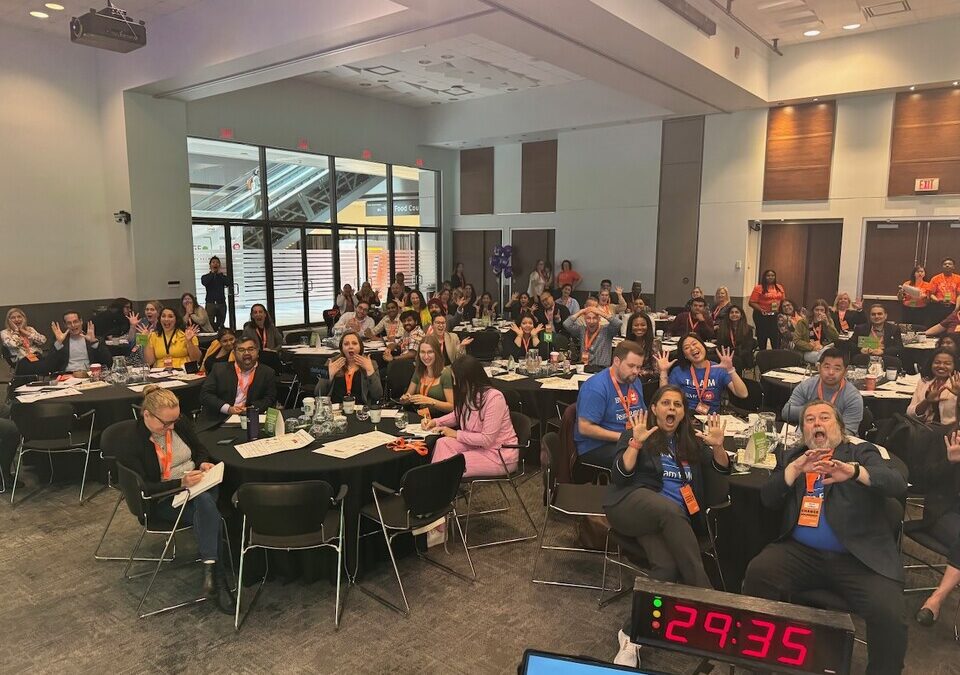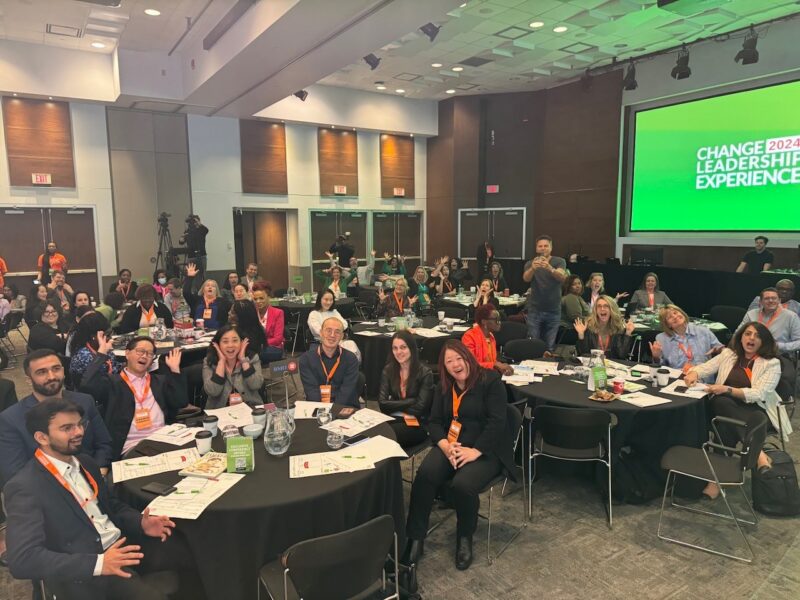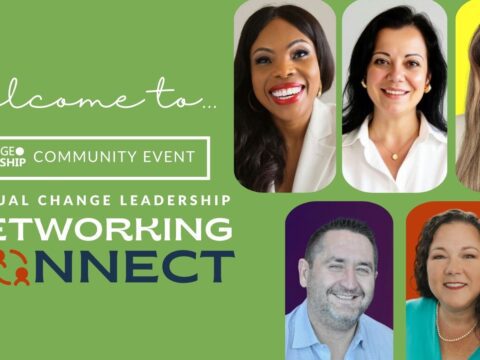Does Change Management Want to Be Disrupted?
Does Change Management Want to Be Disrupted?

By Jason Little, Speaker and Attendee at #ChangeLead24 Conference
Last week, I spoke at The Change Leadership about AI and change management. The conference theme was Disrupting the Status Quo, and I will admit that I am always skeptical when people use that term.
It’s fun to say, but sometimes, we toss it out to be provocative. I say this because I used AI to research what’s been written about this topic five years ago and more than ten years ago. I’ll get back to that a little later, but I want to share some insights from the event. If you want to skip the playback, scroll down for my overall insights.
For starters, Yvonne Ruke Akpoveta is among the most wonderful, kind, engaging and curious people I’ve ever met, so when she asked me to speak about AI, I immediately said yes.
Tim May started with a fantastic hand-written presentation about the importance of working visually and co-creation for overcoming change fatigue. I absolutely loved his energy, and I 100% agreed with everything he said, as that’s been the focus of my work in the change space for the last 15 years. As a bonus, he sketch-noted every other session and presented it at the end of the day! Let this be a lesson to all your other ‘keynote speakers’ who swoop in, talk and leave right after your talk. Be like Tim!
Rehana Rajwani took the stage and talked about organizational physics and debunked plenty of myths that adding people to a project only slows it down and makes it more difficult. Plus, any talk that references Star Wars has to be awesome!
Then I talked about AI. People seemed to like it, but many were afraid AI would take their job:

Section of the audience at the Change Leadership Conference 2024
Cher Jones gave us seven incredible tips for upgrading our personal brand, and I wish I had seen this ages ago! What stuck out for me was when she said, “no one started talking about me until I started talking about me.” Don’t be afraid to be proud of your accomplishments, this extends to us as change agents, not just those of us who are independent and have a personal brand.
Alisa Simon and Barbara Yebuga chatted about mental health challenges and how we can lead change differently. This is an important topic. I grew up in the “suck it up buttercup” era, meaning, when work needed to get done, it needed to get done. That was it. I had my first job at age 9 detasseling corn and I grew up in the country so “work hard and suck it up” was the best we could do back then. I completely disagree with the sentiment that today’s “kids/Gen Z” or however you want to label them are “soft and fragile”. Don’t let TikTok make you think that, it’s not true. The next panel would reinforce that for me.
When I was organizing Spark the Change in Toronto many years ago, we had a TKS student speak and I was happy to see a panel of them talking about how Gen Z is reshaping the workforce. Plenty of answers from them stood out, but if I had to pick one, there was a pattern of seeking purpose and having fulfilling work over “climbing the corporate ladder” for status and loot.
Amanda Cupido made quite a few people wonder why the hell we’re still blasting out newsletters that no one reads instead of running an internal podcasting show that is co-created with the people affected by the change. That was my key takeaway, an internal podcast isn’t another broadcasting channel, it’s a way to engage the people affected by the change.
Cher and Yvonne had a marvellous chat about how this conference came to be and what drives Yvonne to keep going. It was great to hear how far the conference has come in a short amount of time, and it was honestly one of the best run conferences I’ve ever been to.
Finally, we closed with a panel featuring Rich Batchelor , Manisha Paliwal , Myles Bartlett and myself. There were far too many questions and topics we covered but a few highlights stood out:
- Lots of people had AI questions. Lots.
- Each of us gave our thoughts about how change management is changing which is a whole other blog post unto itself.
- Overall it was clear that we all believed change has always, and will always be about people, not process
My Insights
If I had to pick one takeaway, it would be the fact that not one person talked about a certification, process or framework in their talks.
Think about that for a second, “a traditional change conference” filled with people mostly from enterprise companies and conservative industries didn’t have one talk about how to implement a standard, or best practices, or how to follow a magic framework to the promised land.
That is what our profession needs. Events that make people think.
Does Change Management Want to Be Disrupted?
Yes and no. With talks like this, a few people I talked to wondered why they couldn’t do that in their organizations. For example, when talking about AI, I had more than a few conversations around, “well, our leaders won’t let us…<do whatever>” to which I replied: “Get’em in a room, open a browser and do this…<this being the demo of a virtual change team I did amoung other things>”
Whenever you utter the phrase, “we can’t because…” that’s the problem you need to solve.
Change management is a conservative field by definition. It values certainty and sometimes the illusion of certainty, using best practices, step-by-step frameworks, clear role distinctions, and more. It’s less about disrupting change management and more about you, the change agent, consciously choosing to see change differently and adjusting your behaviour.
Back to the research I mentioned in my opening, I asked OpenAI:
“Can you find any information about a topic related to “the future of change management” that is more than five years old? I’m wanting to find blog posts, articles, or research where people have tried to predict how change management will evolve.”
- integration of technology and AI
- evolution of organizational culture to shift towards a co-creation approach
- adoption of agile methodologies
- data-driven decision making
Then I asked:
“Can you find any information that is more than 10 years old?”
- integration of technology and cloud computing and data analytics
- project management evolution towards ‘agile approaches’
- lean and predictive management for managing complex change
You could make the arguement that change experts have been saying the same thing for a couple decades about disrupting the status and some are, but most aren’t because certainty sells.
Defining what disrupting change management means is hard because we need the context.
What do you think? What are you doing in your organization that is disrupting how change happens?
Are you part of our free online change leadership community? Click HERE to join in for free! If you would like to receive updates for our on ‘What’s Changing, and What’s New’ directly to your inbox, be sure to join our mailing list. http://bit.ly/JoinTCList




